22.08.2023.
Minister Vučević opens exhibition “Papers of a Time – German War Propaganda 1941-1944“
Deputy Prime Minister and Minister of Defence Miloš Vučević opened an exhibition at Belgrade’s Military Museum today. The exhibition entitled “Papers of a Time – German War Propaganda 1941-1944” has been mounted to celebrate the Military Museum Day and the 145th anniversary of this military cultural institution.
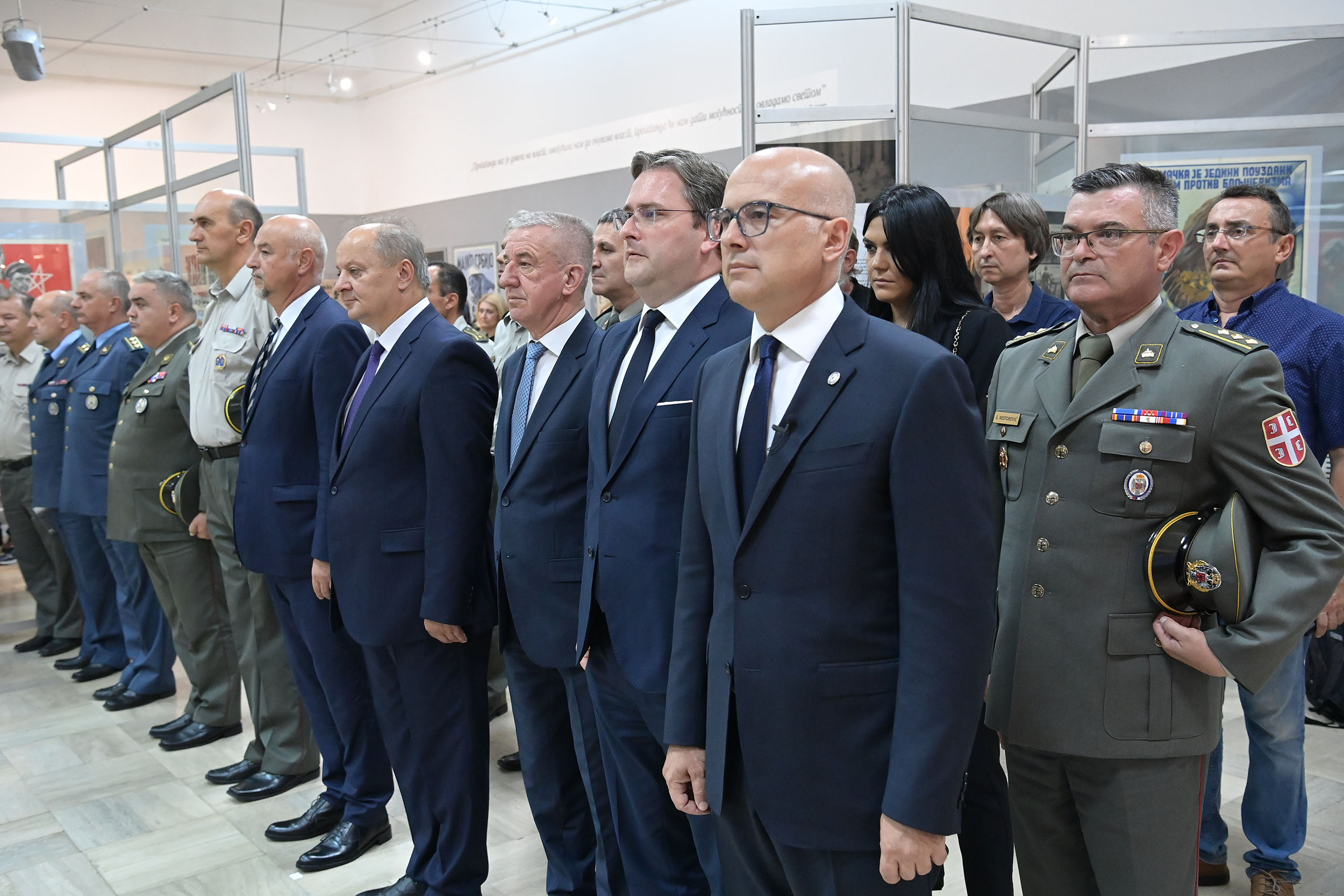 Extending his congratulations on the Museum’s anniversary, Minister Vučević said that this institution is one of the most important symbols of the Kalemegdan Fortress, the capital and the whole of Serbia and that it has contributed to the preservation of the cultural heritage of our homeland for 145 years.
Extending his congratulations on the Museum’s anniversary, Minister Vučević said that this institution is one of the most important symbols of the Kalemegdan Fortress, the capital and the whole of Serbia and that it has contributed to the preservation of the cultural heritage of our homeland for 145 years.- Besides the important role it has played in the Serbian museology and culture in general since its establishment, the uniqueness of the Military Museum is reflected in the year of its establishment. The year when the independence of the Principality of Serbia was declared at the Congress of Berlin. It wasn’t by chance that the decision to establish an institution such as the Military Museum was made in 1878. It is clear that it was established with the aim of preserving the cultural heritage, and therefore the national identity of our people, which represents one of the foundations of every country that considers itself important. It seems that the then prince, Milan Obrenović, who would later become king, wanted to show the Serbian and European public with this gesture that Serbia was not the product of mercy of the major powers that had met at the Congress of Berlin and that its restored independence was not the result of their goodwill and charity, but an undeniable fact, “a fact that was paid for in blood and that has lasted for centuries, and at the core of which is the freedom-loving nation that has lived in this region for centuries," said Minister Vučević.
That nation had its kingdoms and empires and its national uprisings even before the Congress of Berlin, the Minister of Defence said.
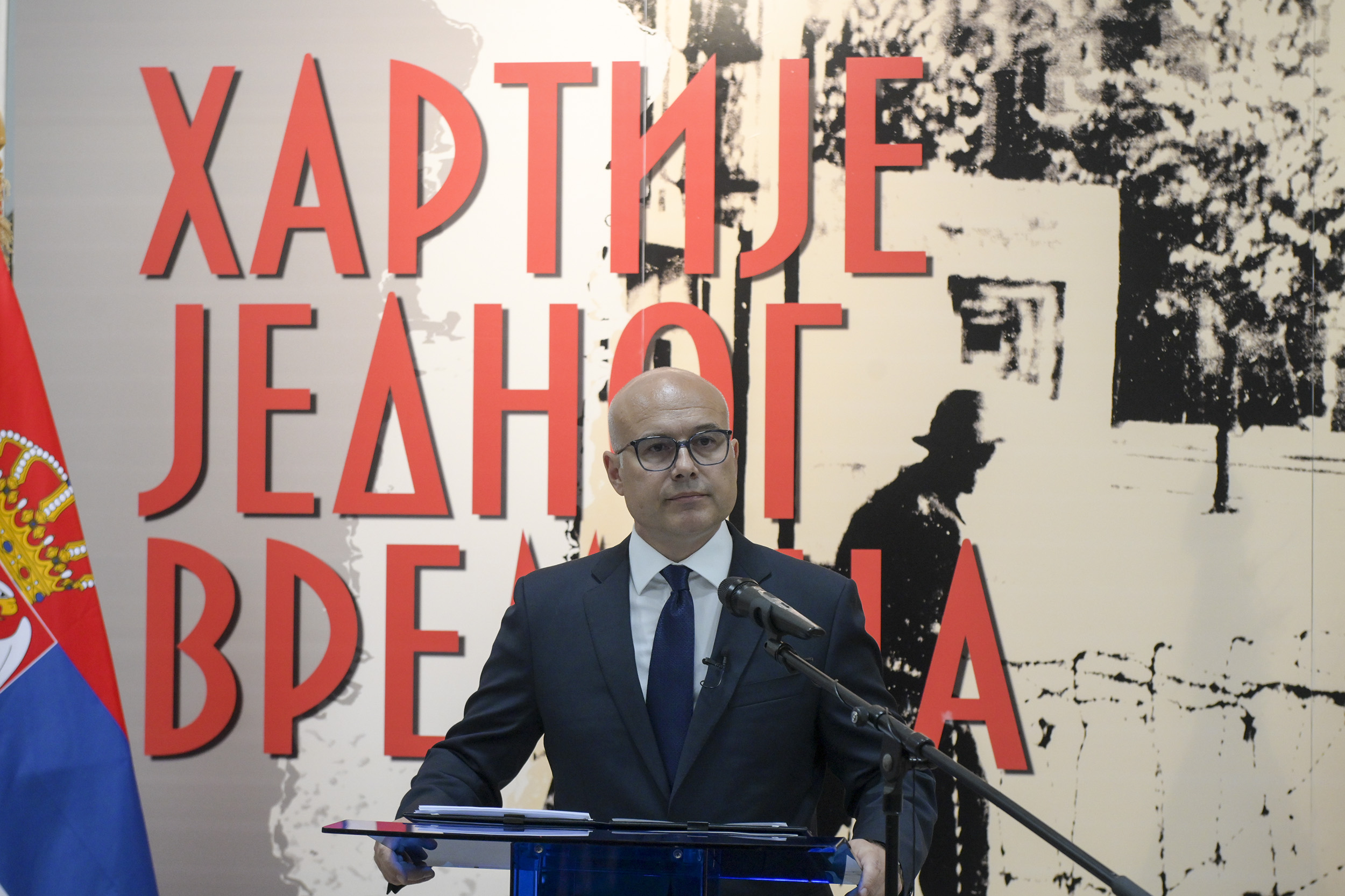 - That nation loved its people's state and army more than anything and was the only nation with a ruler of local origin, a man from a Serbian family, not from abroad. And the only thing they wanted was to be free and equal with all other nations. Our history is the history of our army and people. Therefore, building a country from the ground up after it had been destroyed in continuing occupation, it seemed perfectly logical that one of the first national institutions to be built in that people’s country was the Military Museum, whose task from then until today has been to educate people, to remind and encourage them to protect, love and respect their armed forces as the most powerful guarantor of our independence and freedom - said the Minister of Defence.
- That nation loved its people's state and army more than anything and was the only nation with a ruler of local origin, a man from a Serbian family, not from abroad. And the only thing they wanted was to be free and equal with all other nations. Our history is the history of our army and people. Therefore, building a country from the ground up after it had been destroyed in continuing occupation, it seemed perfectly logical that one of the first national institutions to be built in that people’s country was the Military Museum, whose task from then until today has been to educate people, to remind and encourage them to protect, love and respect their armed forces as the most powerful guarantor of our independence and freedom - said the Minister of Defence.According to him, the link between the Military Museum and the Serbian state and people did not end with its establishment. The periods that saw prosperity and progress of Serbia and its people were accompanied by the progress of the Military Museum, but unfortunately, it shared the nation’s suffering as well, Minister Vučević said.
- The Military Museum faced the same ordeal that the Serbian people went through during the First and Second World Wars. It was demolished and burnt down in the First World War, but was rebuilt in 1934 by the decision of King Aleksandar I Karađorđević. The history says that the "Golden Book" was established at that time in commemoration and as a sign of gratitude to all the donors who had made donations to the Museum. It suffered devastating damage on two more occasions during the Second World War, in the 1941 and 1944 bombings of Belgrade. Even though Serbia was occupied, the spirit of the people and their desire for freedom were never broken or suppressed - Minister Vučević said. By strengthening Serbia, he said, we are also striving to strengthen the Military Museum – a feather in the cap of our national and military history and culture and "we are ready to put our heart and knowledge into solving all its problems going back to the time when there was a lack of concern for the state and the culture of remembrance".
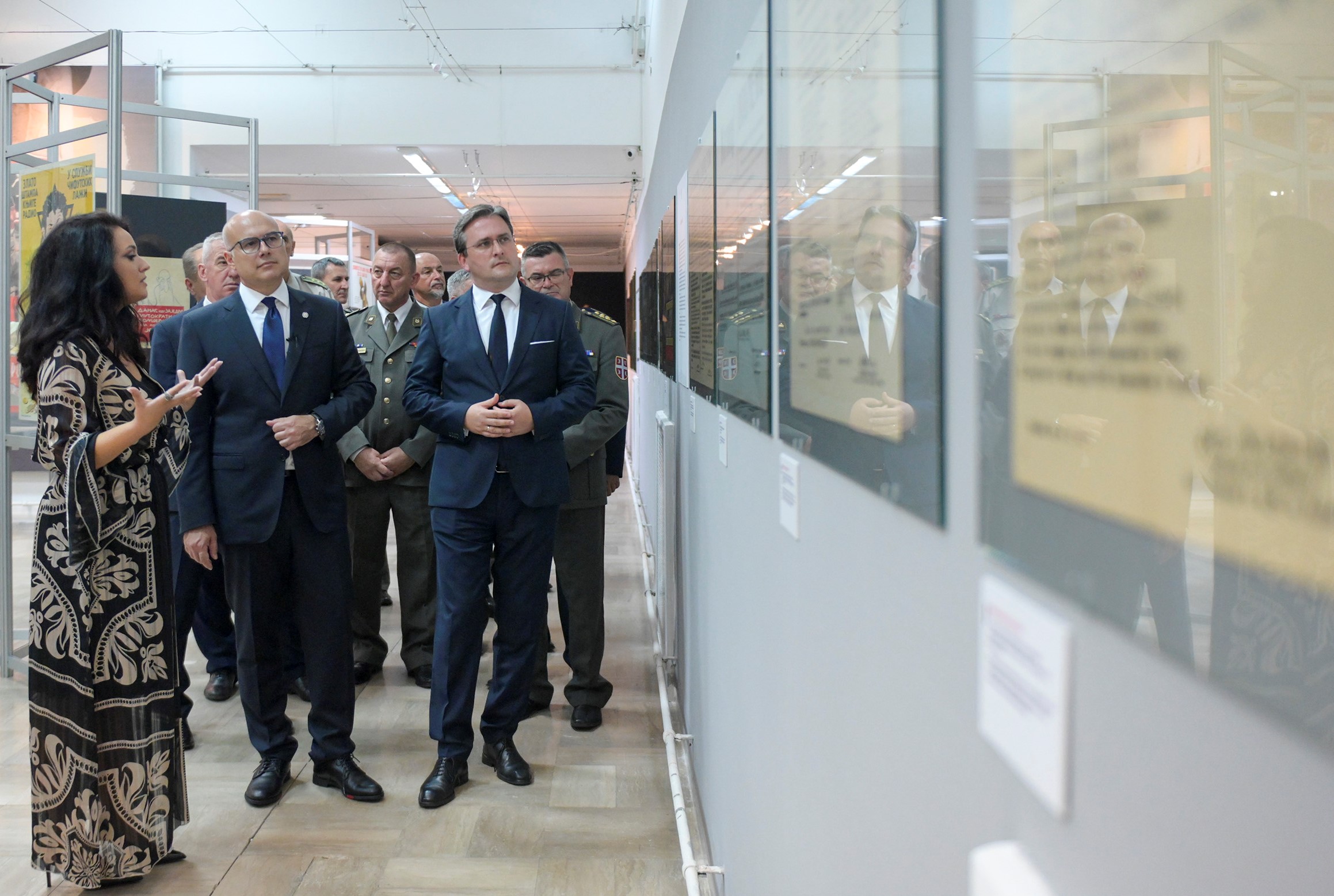 To mark its anniversary, the Minister of Defence said, the Military Museum has organized the exhibition "Papers of a Time - German War Propaganda 1941-1944".
To mark its anniversary, the Minister of Defence said, the Military Museum has organized the exhibition "Papers of a Time - German War Propaganda 1941-1944".- During the wars that put their stamp on history, in addition to the fighting between countries or other social groups, propaganda was always an accompanying segment in combat operations. Its historical development reached its peak in the Second World War and became an indispensable means for waging war, often more effective than weapons. When the Nazis came to power in Germany in 1933, a concerted and centralized war propaganda effort was organized. The Nazi propaganda was carried out by the Chancellor of Germany, Adolf Hitler, and the Reich’s Minister of Propaganda and Public Enlightenment, Joseph Goebbels, who called it the “third front” and considered it a primary strategic and tactical weapon - Minister Vučević said.
He said that German war propaganda falls under the so-called "black propaganda", which is based on false assumptions and untrue conclusions that are drawn from them.
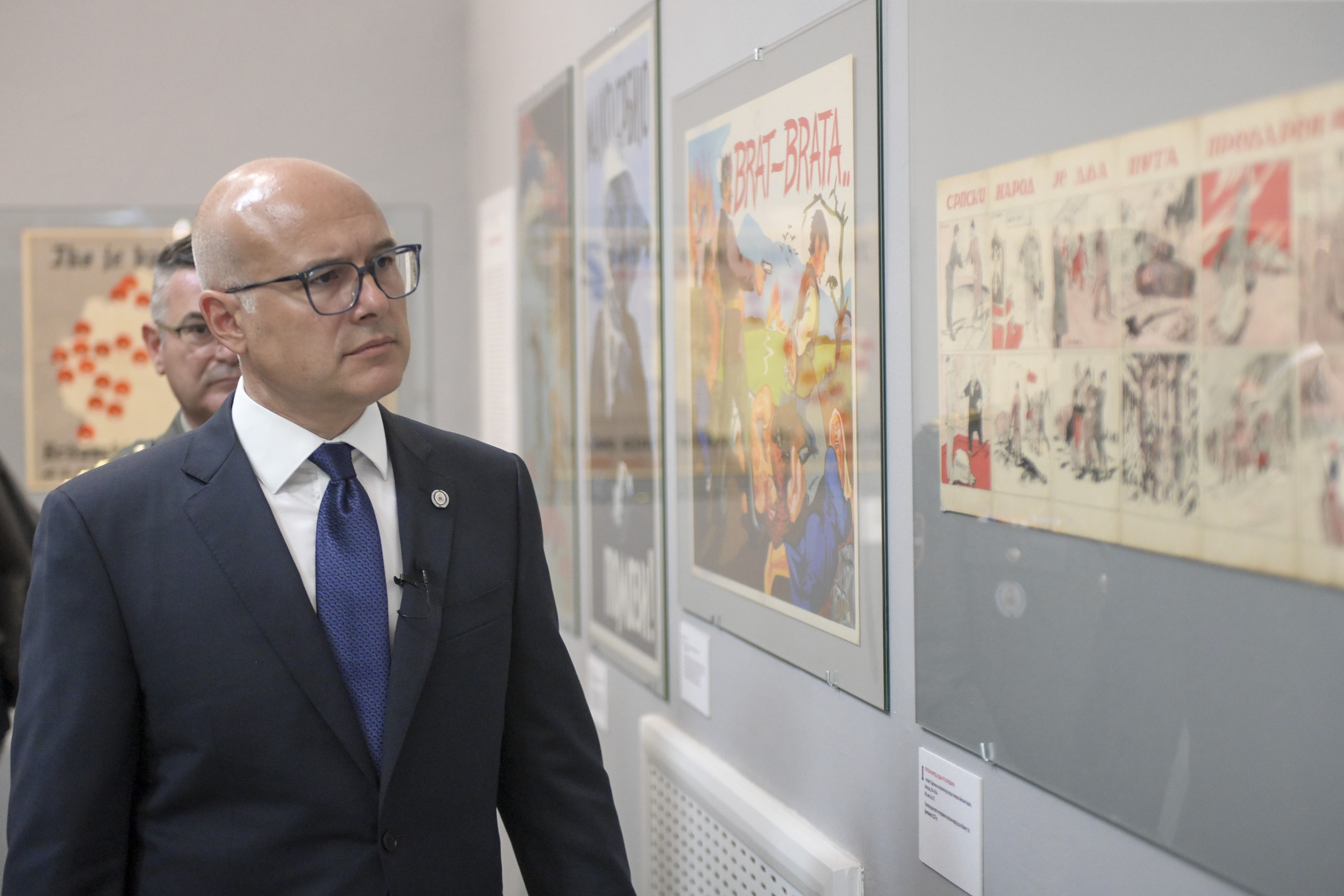 - Its main goal was to intimidate the people in occupied Serbia and thus prevent any form of resistance. This should remind us of the destructive power of propaganda that was carried out against our people’s desire for freedom, due to which countless Serbs lost their lives. It should also remind us of the fact we must not forget, that nowadays, some propaganda makers are trying to influence us to forget that we are a freedom-loving and never defeated people, loyal to the freedom that throughout history we have only had in our free motherland - said Minister Vučević and declared the exhibition "Papers of a Time - German War Propaganda 1941-1944" open.
- Its main goal was to intimidate the people in occupied Serbia and thus prevent any form of resistance. This should remind us of the destructive power of propaganda that was carried out against our people’s desire for freedom, due to which countless Serbs lost their lives. It should also remind us of the fact we must not forget, that nowadays, some propaganda makers are trying to influence us to forget that we are a freedom-loving and never defeated people, loyal to the freedom that throughout history we have only had in our free motherland - said Minister Vučević and declared the exhibition "Papers of a Time - German War Propaganda 1941-1944" open.Addressing the audience, Lieutenant Colonel Milivoje Milisavljević from the Military Museum said that on this day in 1878, began the creation of the rich history of this military cultural institution, whose existence and work have greatly contributed to the development of the business of museums in these parts.
- Generations have put in a great deal of effort, enthusiasm and commitment into preserving museum objects and other artefacts of the region’s rich historical, military and cultural heritage for future generations. The importance of the Military Museum both in the past and present, its valuable collections of about 40,000 items, oblige us to make every effort to protect the reputation of the Military Museum and facilitate its improvement and further development. The guiding thought upon which we have based the work and development of our museum has been that we must not bring disgrace upon our ancestors, and that our descendants must not be ashamed of us, but that they should have something to be proud of and someone to look up to - Lieutenant Colonel Milisavljević said.
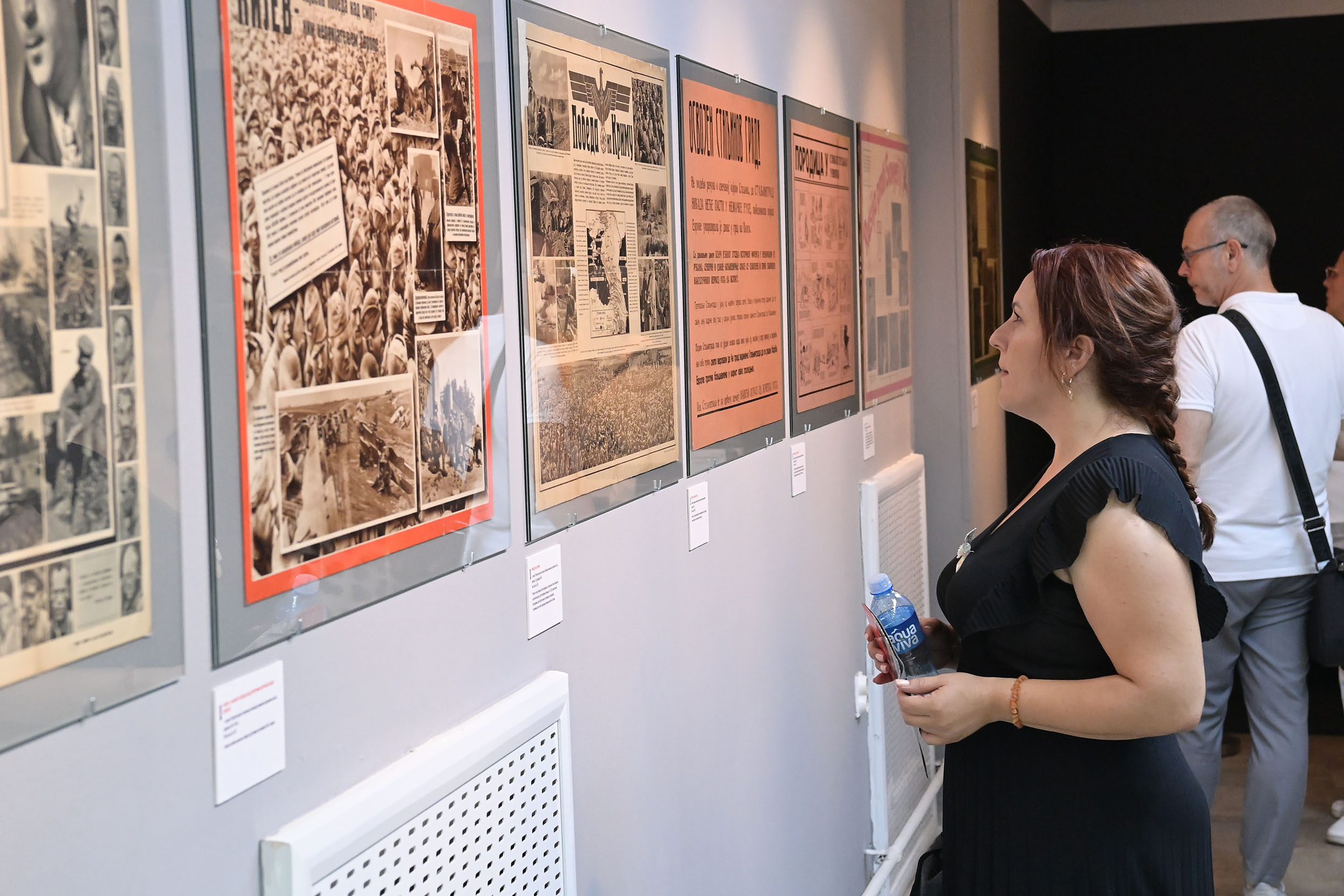 The author of the exhibition, which will be open for visitors until November 3 this year, is the museum curator Milica Jakovljević.
The author of the exhibition, which will be open for visitors until November 3 this year, is the museum curator Milica Jakovljević.The celebration of the Military Museum Day and the opening of the exhibition were attended by Minister of Labour, Employment, Veteran and Social Affairs Nikola Selaković, State Secretary at the Ministry of Defence Mile Jelić, Assistant Minister for Material Resources Nenad Miloradović, PhD, and acting Assistant Minister for Human Resources Siniša Radović.
On this day in 1878, the Military Museum was established by a decree issued by Prince Milan Obrenović. After 145 years of existence, this military cultural institution is still an indispensable part of Serbia’s cultural, historical and social life.
 PHOTOGALLERY
PHOTOGALLERY VIDEOGALLERY
VIDEOGALLERY
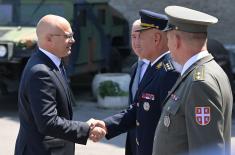
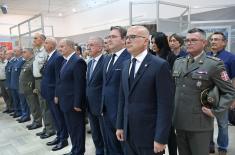
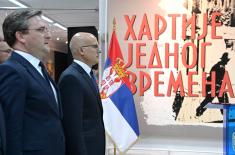
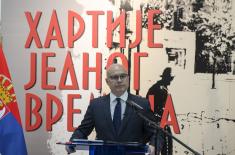
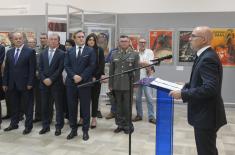
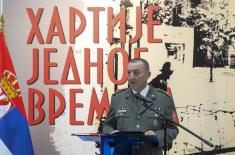
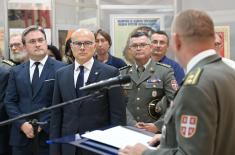
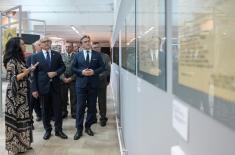
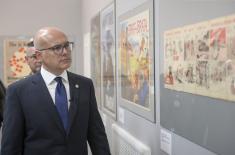
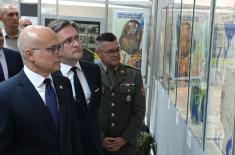
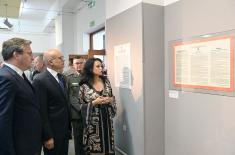
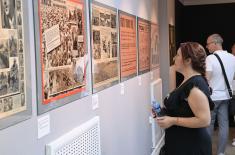
 mp4
mp4 